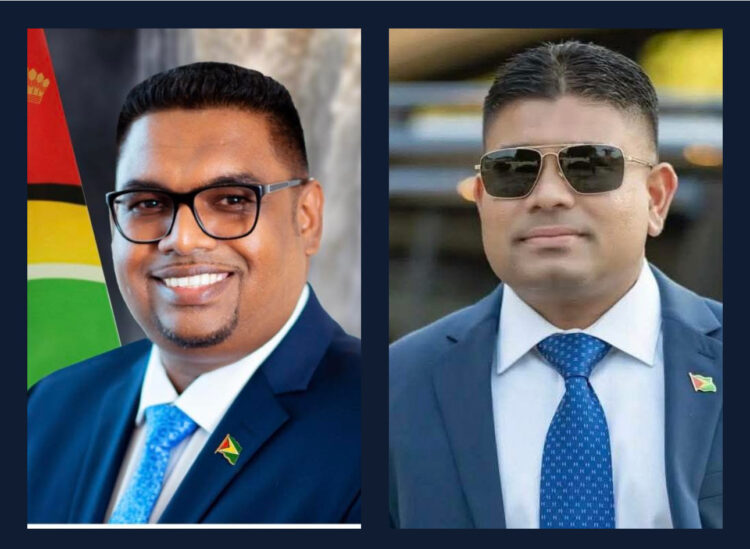GUYANA | US Indictment of Guyanese Opposition Leader Raises Questions About Jurisdiction and Influence

Georgetown, Guyana — October 6, 2025 - The U.S. government’s recent indictment of two prominent Guyanese businessmen, Nazar Mohamed and his son Azruddin Mohamed, has sent shockwaves through Guyana’s political and business communities.
Both men remain in Guyana, but the charges filed in the United States District Court for the Southern District of Florida carry heavy implications not only for their personal futures but also for Guyana’s sovereignty and its evolving relationship with Washington.
The 17-page indictment, filed on October 2, 2025, accuses the Mohameds of mail fraud, wire fraud, and money laundering under 18 U.S.C. §§ 1349, 1343, 1341, 1956(h), 981(a)(1)(C), and 982(a)(1).
Prosecutors allege a multi-year scheme to defraud the Guyana Revenue Authority (GRA) by underreporting gold exports and concealing profits through financial channels connected to Miami and Dubai.
However, what began as a transnational financial case has now evolved into a political and diplomatic flashpoint.
In a stunning turn, Azruddin Mohamed, 34, recently led his new political party, the Working for Independence and Nationalism (WIN), to a remarkable showing in Guyana’s general elections, capturing 16 parliamentary seats.

Azruddin is expected to be sworn in as Leader of the Opposition within days, even as the U.S. indictment looms over him. The charges, which were filed just weeks after his political surge, have ignited intense public debate over the timing and geopolitical implications of Washington’s move.
Political observers across Guyana are already questioning whether the prosecution represents a genuine pursuit of justice or a calculated display of U.S. extraterritorial influence in a small, resource-rich democracy.
According to the indictment, Mohamed’s Enterprise, the family-owned gold export business, operated from Guyana but maintained financial and shipping ties with Miami and Dubai.
Prosecutors allege that between 2017 and 2024, the company used fraudulent invoices, underreported export values, and falsified customs documents to evade taxes and royalties owed to Guyana’s government.
The document further claims that both Nazar and Azruddin “knowingly transmitted and caused to be transmitted” false communications and records via interstate and foreign commerce, including the use of U.S. banks and courier services.
Under U.S. law, such actions can be prosecuted when even part of the activity, such as a bank transfer or email, passes through an American system. Each count carries a potential penalty of up to 20 years in prison, plus asset forfeiture of properties or accounts tied to the alleged crimes.
Legal experts and political analysts are questioning whether the U.S. has legitimate jurisdiction in this matter. The indictment acknowledges that the alleged offenses occurred “in Guyana and elsewhere”, yet the business operations, taxes, and royalties at issue are entirely domestic to Guyana.
“This case raises profound questions about sovereignty and the reach of U.S. law,” said a senior Caribbean legal scholar. “Can a foreign power indict and seize the assets of Guyanese citizens for actions that allegedly took place within Guyana’s borders and under Guyana’s laws?”
The case echoes a growing pattern in which U.S. authorities use extraterritorial statutes to pursue foreign nationals involved in commerce that merely touches the U.S. banking system — an approach many in developing nations view as judicial overreach.
For Guyana, the stakes extend far beyond one legal battle. With the country’s economy now fueled by oil, gold, and foreign direct investment, the indictment introduces new uncertainty into Guyana, U.S. relations, already tested by shifting global alliances and questions of influence in the Caribbean.
Domestically, Azruddin Mohamed’s political ascent has energized younger voters and business leaders seeking alternatives to the two traditional parties. His upcoming swearing-in as Leader of the Opposition now places Guyana in an unprecedented situation, a sitting opposition leader under federal indictment by a foreign power.
If the U.S. seeks extradition, it could ignite a constitutional and diplomatic standoff, pitting national sovereignty against international legal pressure. More importantly, there are alleged members of the PPP government who will soon be indicted.
The case of Nazar and Azruddin Mohamed is now more than a criminal proceeding, it is a test of Guyana’s independence in the age of globalized justice. It challenges how small states navigate relations with powerful allies while maintaining control over their own legal and political systems.
As one political analyst put it, “Whether guilty or not, this case will force Guyana to decide whose laws really rule, its own, or someone else’s.”
-30-
